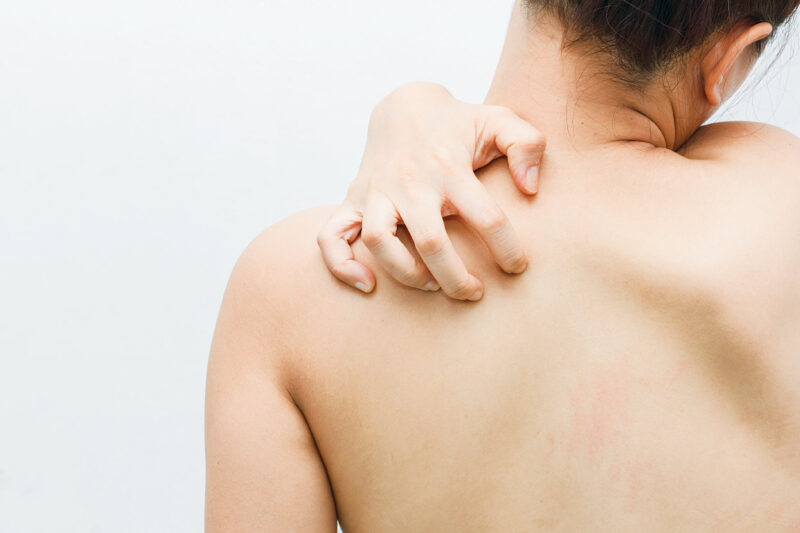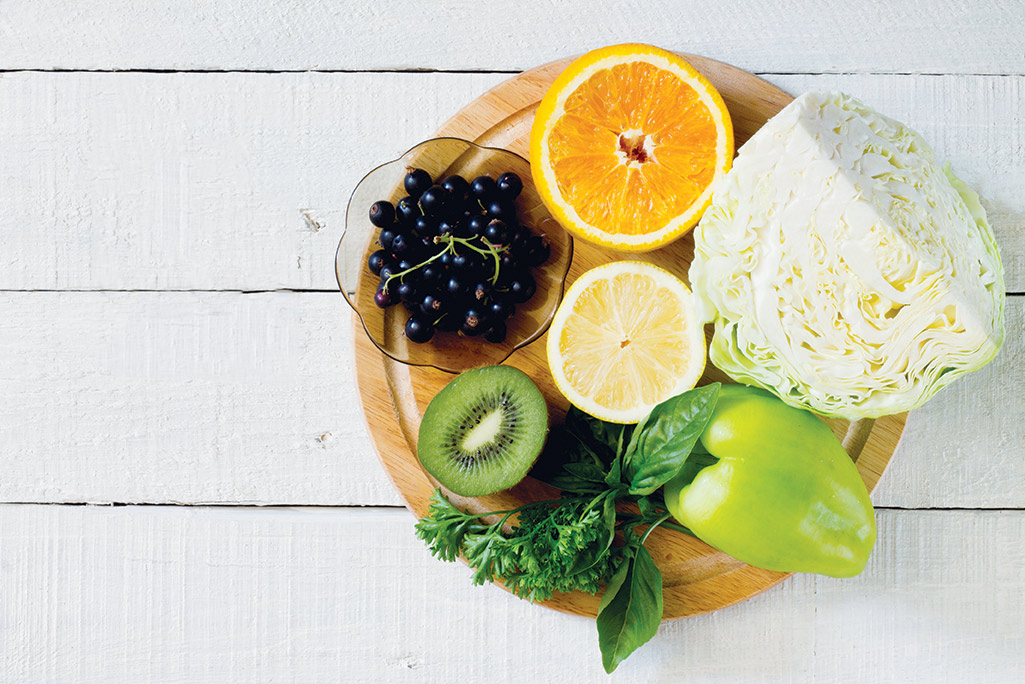As the season changes to warmer days ahead, the chances of contracting serious infections also increase manifold due to environmental pollutants being on an all-time high. In case, you or someone close to you are among the unfortunate ones to have been bitten by the sickness bug, it is important that you choose your foods wisely during your recovery period. Bindu Gopal Rao suggests easy food cures.
An ancient Ayurvedic proverb goes, ‘When diet is wrong, medicine is of no use. When diet is correct, medicine is of no need.’ As simple as that sounds, we often tend to ignore the fact that eating the right foods can actually help curtail many health issues. In fact, foods can help in curing major ailments such as typhoid, jaundice, dengue, malaria, chicken pox and the like.

EAT RIGHT
Whenever we have any major illness such as typhoid, dengue or malaria, our body goes through some form of stress. Most of these illnesses cause loss of appetite and nausea, leading to low energy levels and dehydration. Yes, you read that right. So what are the recovery foods that can help? Read on to know more.
For Dengue
What to eat: Foods rich in vitamin C and anti-oxidants are known to be helpful. These include citrus fruits such as lime, oranges, berries like strawberries and gooseberries, fruits like guava, papaya and kiwi, dark green leafy vegetables, broccoli and bell peppers. “We need to ensure that adequate and right kind of foods are consumed to help recover faster and better. In all these conditions, it is important to keep yourself well hydrated by drinking a good amount of fluids with sufficient electrolytes and minerals such as tender coconut water, lime water, and fruit juices. Fruits and vegetables rich in vitamin C and antioxidants are also of great help for faster recovery. Bland, soft easily digestible foods are advised so there is no strain to the digestive system. Our body requires lot of energy during the recoupment phase, hence the need to take high calorie food, the carbohydrates,” says Dr Anupama. N, Consultant, Preventive Health Medicine, Sakra World Hospital, Bengaluru.
What to avoid: Avoid fatty and high fibre containing foods. Proteins also aid in recovery, however, they may be introduced later once the illness has settled down a bit,” Dr Anupama adds.

For Typhoid
What to eat: Lalitha Subramanyam, Chief Nutritionist and Dr Vinay Bhardwaj, Head, Quantitative Health, Grow Fit opine, “For typhoid, include foods that are easy to digest and high in hydration and avoid high fibre products. This will help ease symptoms without aggravating the digestive system. Leguminous options make sure you meet your daily protein intake. Maintain good fluid intake in the form of tender coconut water, barley water, electrolyte, fresh fruit juice, and vegetable soup to normalize body temperature. Gradually consume fruits like bananas, cantaloupes, watermelons, grapes, peaches, and apricots.”
What to avoid: Avoid solid foods unless very hungry. As appetite improves, semi-solid food can be given
like boiled rice, baked potato, soft-boiled or poached eggs. As fever subsides, foods like unpolished rice and white bread can be consumed and vegetarians should use lentils, legumes and cottage cheese, to meet protein needs.”
For Jaundice
What to eat: Maintaining adequate electrolyte balance is essential so fruits and broths make good choices. Avoid using oil and go for steamed/boiled preparations. “Go for broths, custard and yoghurt, fruits like grapes, pears, watermelons, carrots and beets to maintain electrolyte balance and counter reduced bilirubin. Add simple leafy vegetables like spinach and kale. For protein sources go for lean meat, skimmed milk in limited amount and legumes.Consume foods rich in carbohydrates to maintain adequate calorie supply. Cereal porridge, bread, rice, potato and yam are good options.
What to avoid: Avoid consuming products rich in fats like red meats and fried or oily foods to avoid stressing the liver and also avoid sugar rich food products, especially those containing artificial sweeteners,” advises Bhardwaj.

HYDRATION IS EVERYTHING
It is important to build energy reserves during these illnesses and hence fruit juices and fresh fruits play a major role in recovery. Afterwards, maintaining hydration is of utmost importance. For malaria and dengue, orange juice or fruit juice diet is recommended as soon as the diagnosis is made, especially if the patient has typically high fever. Says Lalitha, “The next phase involves consuming ample amount of fresh fruit and pineapples, papayas, oranges, grapes, apples, grapefruits, and mangoes are good choices. This can continue for three days post diagnosis. Post a fruit diet, semi-solid foods like milk, curd etc. can be given. During the convalescing period, the patient should have a well-balanced diet consisting of vegetables, fruits, whole grains, and nuts (avoid oil rich varieties) and also avoid alcohol, tea, coffee, and other caffeinated beverages, refined and processed foods.”
For chicken pox, the patient should be given easy-to-digest foods such as porridge and rice. Fluid intake should be enhanced to promote healing. The patient is usually unable to digest food properly and thus easily digestible food like khichri, plain rice and dal, poppy seeds should be given. Non-vegetarian diet should be strictly avoided as it puts additional pressure on the body in terms of caloric demand for digestion. Include fluid-based options like fruit juice, coconut water, vegetable soup etc. to enable nutrient absorption and promote convalescence. Avoid spicy, fried and crunchy food which can irritate blisters that form inside the mouth and throat. You can consult a physician and include zinc, magnesium and calcium supplements in your diet to boost the immune system.

INCORPORATE ENOUGH PROTEINS
It is important that while using food for recovery and convalescence from illness, the diet should not be too restrictive. You should always leave room for adequate amounts of proteins and simple carbohydrates to meet the body’s structural and energy related requirements respectively. Along with
a planned balanced diet, optimal hydration is also necessary to promote healing. Make sure your electrolyte intake is well balanced while recovering from diseases like typhoid and dengue. Ensure that you get a good sleep and complement it with some form of physical activity. Those who have other concomitant illnesses like diabetes, heart disease, hypertension etc. should talk to their healthcare providers before going on a recovery diet-plan. Be aware of what foods can interfere with your medications as well.

Luke Coutinho, Integrative and Lifestyle Medicine, Holistic Nutrition, Exercise Physiologist and Founder, Purenutrition.me advises, “Drink plenty of fluids such as water, soups, juices as the body loses excess water during illness. Include green leafy and all coloured vegetables and fresh fruits in your
diet to maintain the nutritional requirement of the body like vitamins and minerals. Have
a protein rich diet including eggs and lean meats like fish, chicken and avoid foods that are too spicy and oily such as fried food, refined sugar and flour, alcohol, red meat. Include garlic and ginger as they have medicinal properties and help in healing the body. Also, include carbohydrates in your diet as the body needs energy which is lowered due to infection. Have natural yogurt to provide probiotics to the body to improve the weakened digestion. Papaya leaf juice is helpful in dengue and sugarcane juice in jaundice.”
Foods have the power to heal and you must harness this to your advantage. As Alison Levitt said, “good food is wise medicine.”


